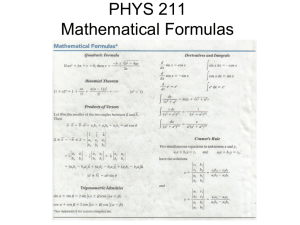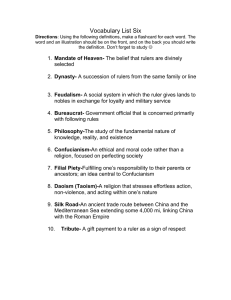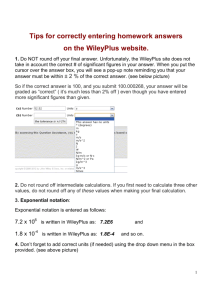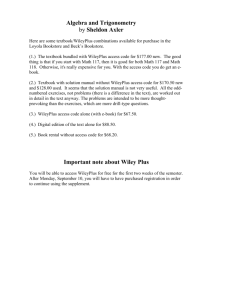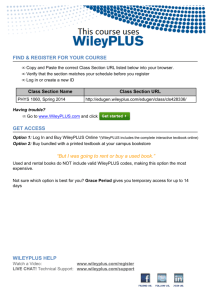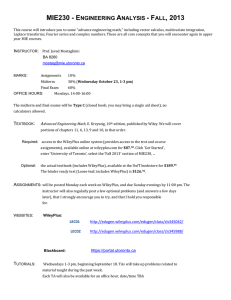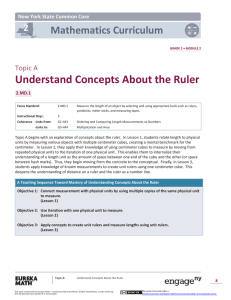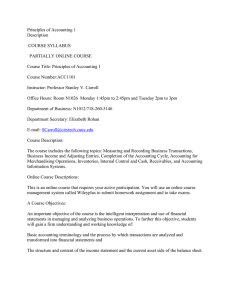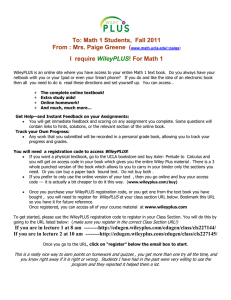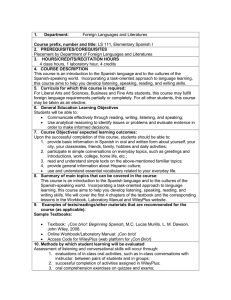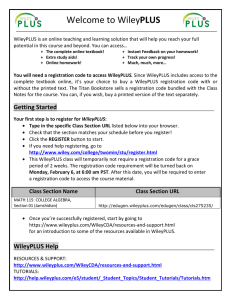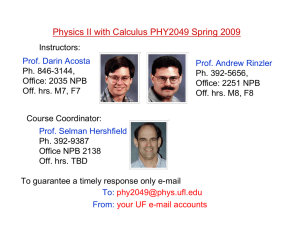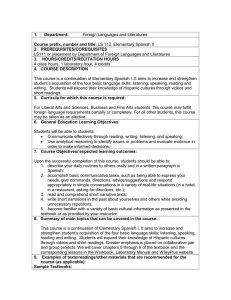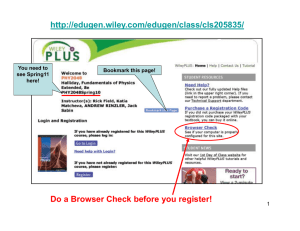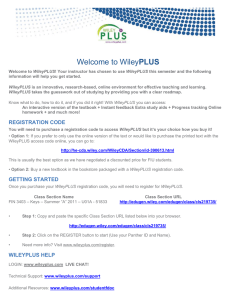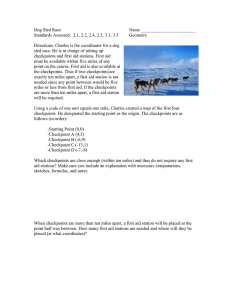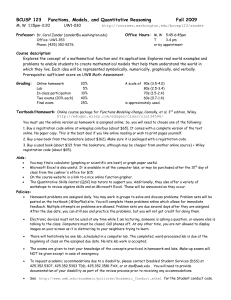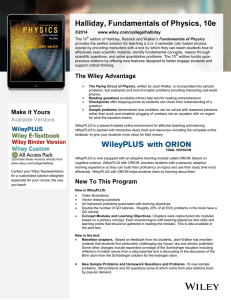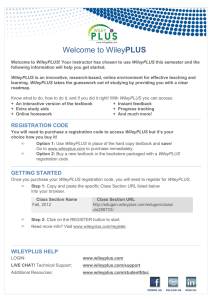Chapter1aF12
advertisement
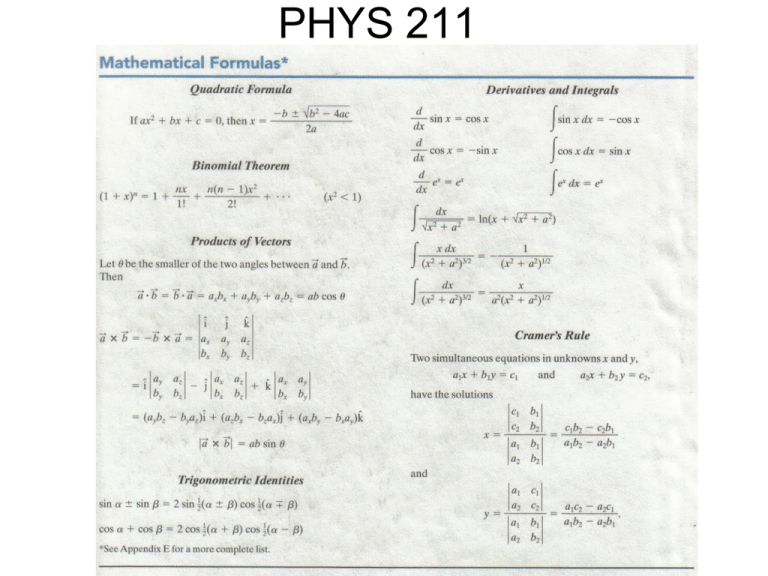
PHYS 211 How to study physics? 1. 2. 3. 4. 5. 6. Read the text. Every chapter starts with the question, “What is physics?” As you read through the chapter, practice physics by doing/following sample problems and checkpoints. Pay attention to key ideas and problem-solving tactics. Try to answer many questions and solve many problems at the end of chapter. Do the homework in WileyPlus. Make use of other resources: textbook website. Get help when needed. Chapter 1 Measurement In this chapter we will explore the following concepts: 1. Measurement of a physical parameter 2. Units, systems of units 3. Basic units in mechanics 4. Changing units 5. Significant figures 1.2 Measuring Things • We will come across many physical quantities in physics: length, time, speed, area, mass, temperature, pressure, wavelength, electric current, magnetic field, etc. • We measure each physical quantity in its own unit, by comparison with a standard. The unit is a unique name we assign to measures of that quantity—for example, meter (m) for the quantity length. • Rulers, which approximate our length standard, give us one such procedure for measuring length. However, many of our comparisons must be indirect. You cannot use a ruler, for example, to measure the radius of an atom or the distance to a star. 1.3 The International System of Units • SI Base Units • SI Derived Units • Prefixes for SI Units 1.4 Changing Units BMI: Body Mass Index
